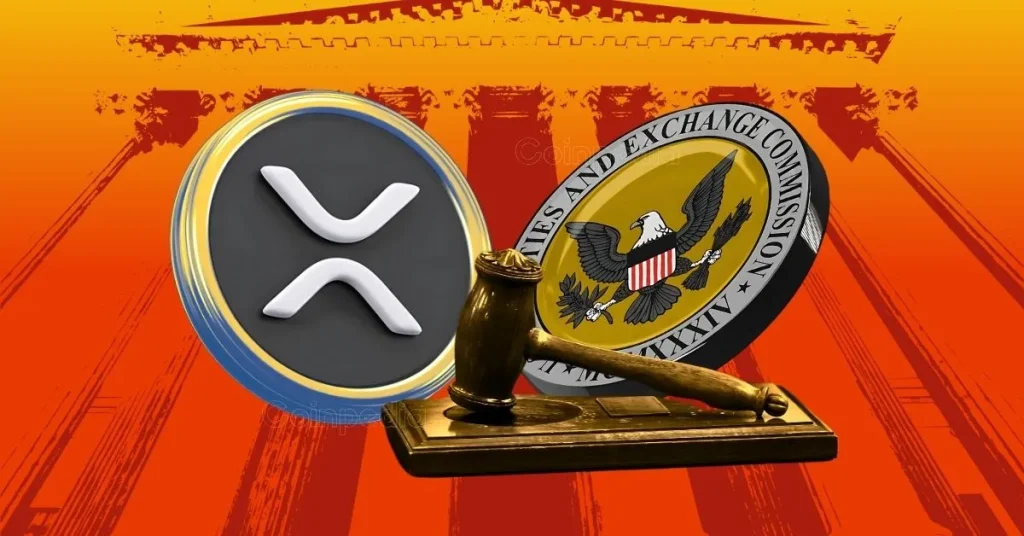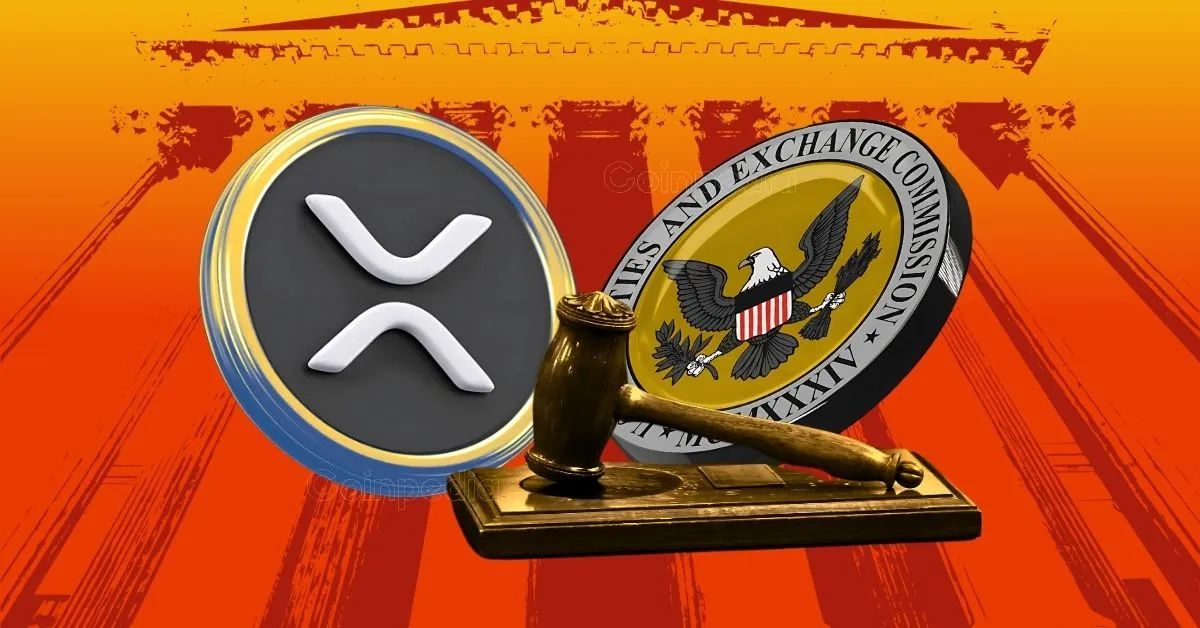
The Ripple vs. SEC Saga: A Comprehensive Analysis
Introduction
The legal battle between Ripple Labs and the U.S. Securities and Exchange Commission (SEC) has been a defining moment in the cryptocurrency industry. This high-stakes case, which has unfolded over several years, has not only captivated the crypto community but also set the stage for future regulatory frameworks. The case’s complexity, marked by intricate legal arguments and significant implications, underscores the tension between innovation and regulation in the digital asset space.
Project Crypto and the Stifling of Innovation
The SEC’s lawsuit against Ripple, which alleged that the company sold XRP as an unregistered security, has been a contentious issue. Critics argue that the SEC’s actions have stifled innovation within the cryptocurrency industry. The regulatory uncertainty created by prolonged legal battles like the Ripple case has been seen as a hindrance to investment and growth. Industry experts suggest that delaying the resolution of such cases punishes innovation, driving it overseas. This perspective highlights the delicate balance between regulatory oversight and fostering a thriving digital asset ecosystem.
Appeals Dropped, But the Story Continues
A pivotal moment in the case occurred when both Ripple and the SEC decided to drop their respective appeals. Ripple withdrew its cross-appeal, and the SEC is expected to follow suit, indicating a willingness from both sides to move forward. This decision leaves the court’s previous ruling, which stated that XRP is not a security when sold on the open market, intact. However, the settlement of a $125 million penalty remains a point of contention. The dropping of appeals does not signify the end of the case but rather a shift in the legal strategy.
The Lingering Shadow of the SEC
The SEC’s initial accusations have left a lasting impact on Ripple and the broader crypto market. The central claim that Ripple sold XRP as an unregistered security offering has been a contentious issue throughout the case. This accusation has not only affected Ripple’s operations but also raised concerns about the regulatory classification of other digital assets. The SEC’s actions have forced many in the industry to carefully consider the legal implications of their activities, creating a climate of uncertainty.
A Contentious Figure: Jesse Powell and Kraken’s XRP Delisting
The delisting of XRP by cryptocurrency exchange Kraken sparked debate and speculation. Ripple’s CTO, David Schwartz, addressed claims that Kraken’s founder, Jesse Powell, harbors personal animosity towards XRP. Schwartz suggested that Powell’s decisions regarding XRP were primarily based on legal considerations and regulatory pressures, rather than personal feelings. This highlights the challenges that exchanges face in navigating the complex and evolving regulatory landscape surrounding digital assets.
The Significance of August 15, 2025
The date August 15, 2025, looms large in the Ripple-SEC timeline. The SEC is expected to submit a status report by this date, providing an update on the progress of the case and its potential resolution. This report will likely offer insights into the SEC’s intentions and could signal the next steps in the legal process. The cryptocurrency community will be closely watching for any indications of how the case might proceed.
A Precedent-Setting Case
The Ripple-SEC case has far-reaching implications for the entire cryptocurrency industry. The outcome of this legal battle could establish important precedents for how digital assets are classified and regulated in the United States. The decisions made in this case could influence the regulatory landscape for years to come, shaping the future of cryptocurrencies and blockchain technology.
Ripple’s Expansion Plans
With the SEC case potentially nearing its end, Ripple is poised to pursue major expansion plans. Overcoming the legal uncertainty that has plagued the company, Ripple can now focus on growing its business and developing new applications for its technology. The resolution of the case could unlock new opportunities for Ripple and allow it to play a more prominent role in the global financial system.
Financial Penalties and Injunctions
While a resolution may be in sight, the issue of financial penalties remains a key point of contention. The SEC is seeking a significant penalty from Ripple, while Ripple is likely to argue for a more lenient settlement. The final amount of the penalty could have a substantial impact on Ripple’s financial health and its ability to invest in future growth. Additionally, the SEC is seeking a permanent injunction against Ripple, which could restrict the company’s activities in the future.
The Role of Judge Analisa Torres
Judge Analisa Torres has played a crucial role in the Ripple-SEC case. Her rulings on key issues, such as the classification of XRP, have had a significant impact on the direction of the case. As the case moves towards a potential resolution, Judge Torres’s continued involvement will be essential in ensuring a fair and just outcome. Legal experts and XRP supporters eagerly await a key ruling from Judge Analisa Torres, but it is clear that several procedural steps still remain before the case can officially be closed.
The Market’s Reaction and XRP’s Potential
Analysts have speculated on the potential price of XRP following the resolution of the SEC case. Some predict that XRP could reach as high as $15, driven by increased regulatory certainty and renewed investor confidence. However, it’s essential to note that such predictions are speculative and that the actual price of XRP will depend on a variety of factors, including market conditions and overall investor sentiment.
SEC Settlement Timeline
After more than four years of intense legal battles, the SEC officially dropped its case against Ripple, bringing this landmark crypto saga to a close. This decision marks a significant milestone in the case, signaling a potential shift in the regulatory landscape towards a more crypto-friendly approach.
A Ripple Sec Agreement: A Crypto-Friendly Shift?
The SEC’s potential withdrawal of its appeal against Ripple Labs could signal a broader shift in the regulatory landscape towards a more crypto-friendly approach. This shift could encourage innovation and investment in the cryptocurrency industry, fostering a more collaborative relationship between regulators and digital asset companies. The resolution of the Ripple-SEC case could set a precedent for future regulatory actions, promoting a more balanced approach to digital asset regulation.
Is it Truly Over? The Lingering Questions
Despite the progress made towards a resolution, some legal experts caution that the Ripple-SEC case may not be entirely over. While the appeals may be dropped and a settlement reached, there could still be lingering legal issues or the potential for future regulatory actions. It’s essential to remain vigilant and continue to monitor developments in the case.
The Future of Crypto Regulation
The Ripple-SEC case has served as a wake-up call for the cryptocurrency industry, highlighting the need for greater regulatory clarity and compliance. As digital assets become increasingly integrated into the global financial system, it is crucial to establish clear rules and guidelines to protect investors and prevent illicit activities. The outcome of the Ripple-SEC case will undoubtedly shape the future of crypto regulation in the United States and beyond.
A New Chapter Begins
The resolution of the Ripple vs. SEC saga, however it ultimately concludes, marks the end of one chapter and the beginning of another. For Ripple, it presents an opportunity to move forward with its business objectives, unburdened by the weight of legal uncertainty. For the broader crypto industry, it provides valuable lessons about the importance of regulatory compliance and the need for clear legal frameworks. As the cryptocurrency landscape continues to evolve, the insights gained from this landmark case will undoubtedly shape the future of digital asset regulation.





